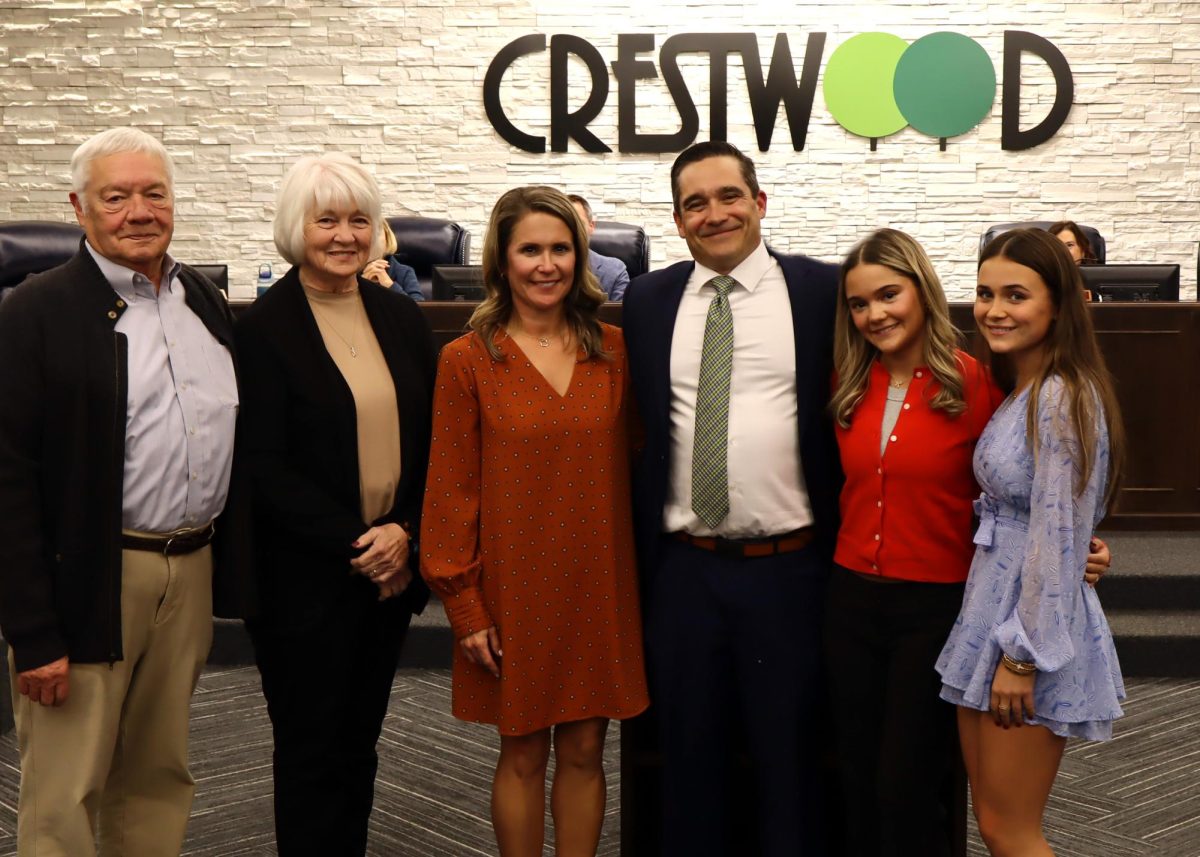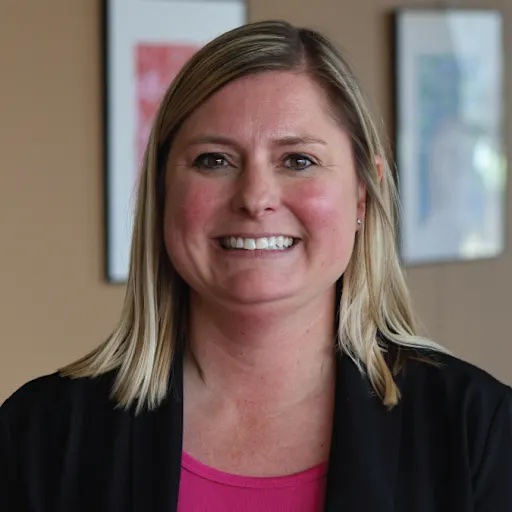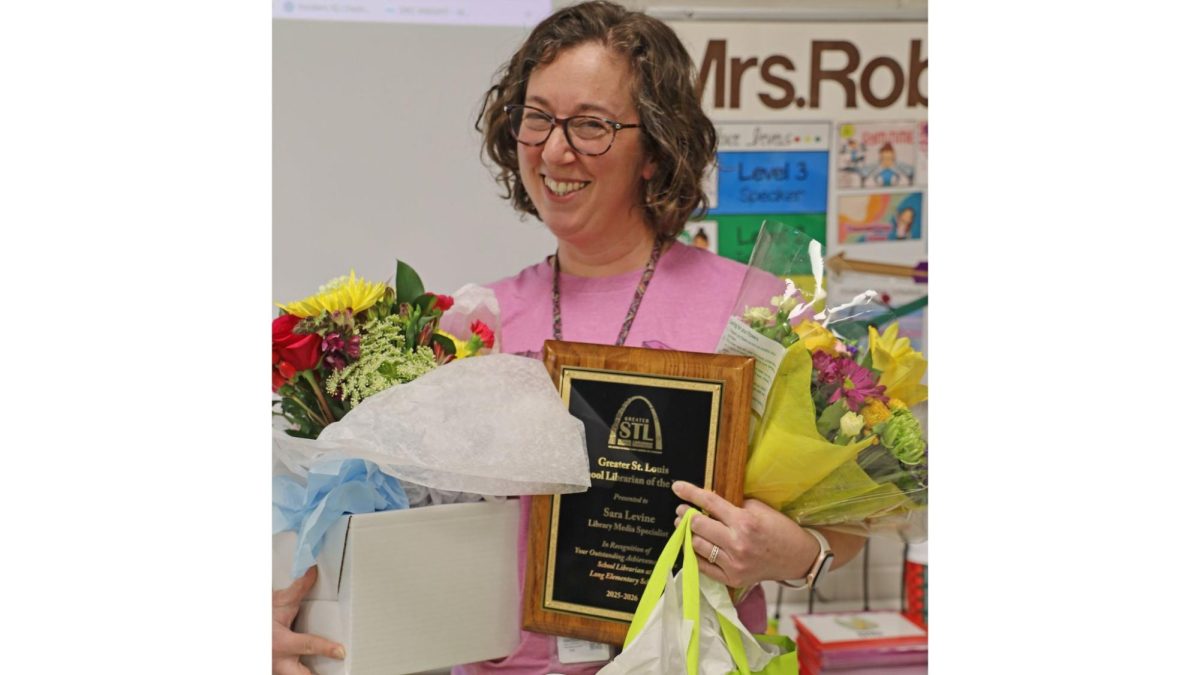Three Mehlville Board of Education candidates outlined their varying positions on construction of the district’s first auditorium, funding school safety improvements and teaching evolution at a candidate forum last week.
Board Secretary Larry Felton, board President Venki Palamand and challenger Lori Trakas are seeking two seats on the Mehlville school board in the Tuesday, April 2, election. Felton and Palamand were first elected to the board in 2007. The two seats carry three-year terms.
The candidates fielded about 25 questions during the March 18 forum at the Mehlville Senior High School Library. Roughly 60 people attended.
The three candidates agreed an auditorium is a good curricular piece for children, but Trakas questioned how the district is funding the construction.
Though she said auditoriums are “wonderful, beautiful things” that every child desires, the “challenge is how we went about attaining the auditorium.”
Trakas noted the auditorium is being funded through the refinancing of bond-like certificates initially issued by the district as part of Proposition P, a $68 million bond issue approved in November 2000 to fund a districtwide building improvement program.
During the course of the Prop P construction projects, Trakas said “the board bumped up the budget over $21 million because of overruns.” Therefore, Trakas contended the district’s statement that the auditorium is being funded without a tax increase is false.
“We’re smarter than that in this community,” she said. “And when you dig a little deeper, you’ll find out that that money came from Prop P, that it was a refinance and that we had no option as the public to where that money went to. I think that’s not being transparent, and I think that’s where the breakdown is. Because if you can’t be transparent … never going to build the trust of this community …”
Sometimes, according to Felton, even when district officials are transparent, “some concepts are difficult to explain.”
“When you don’t change your tax rate, then you’re really not causing any tax issues,” he said. “Some of the financial things we do in terms of refinancing, that’s because we have an expert in our CFO that helps us do that.”
Felton also said sometimes board members may not, at first, understand the financial processes Chief Financial Officer Noel Knobloch uses.
“But I think transparency is explaining what you’re doing, how you’re going to do it and completing it,” Felton said. “People may not always agree with the outcome, but they’ll know how you got there.”
Palamand said he believes Mehlville has been transparent with the public, specifically relating to funding the auditorium construction.
The district “simply refinanced bonds that were paid at a much higher rate,” according to the current board president.
“When we say it was a no tax increase — and it was all published in the local media — we didn’t go back and ask the taxpayers for any more money …,” he said. “To say this was something different, it’s just not true. We wound up able to build within (our) current budget, and that’s how we say there’s no tax increase.”
The candidates’ responses varied regarding security upgrades in the district.
Trakas said what has to be identified first is “what really is a solution to security.”
“We’ve seen the things that haven’t worked and we need to take an overhaul look at what school security is going to work before you can really determine how you’re going to fund it with (what) the budget really calls for …,” she said. “I think that we need to think outside the box, but first and foremost we need to make certain that we know our kids are secure in our school …”
Felton said security upgrades have to be part of the basic budget. Several pieces are involved with security, according to Felton, including the hardware — buzzers and camera systems — and the district’s relationship with the county police.
“I can’t think of anything more important than the security of children that we’re trusted with,” Felton said.
Depending on what upgrades would be considered, the district can “probably fund a lot of security upgrades” within its current budget, according to Palamand.
“We added locks at the high school where we have to buzz in. We didn’t have that before,” he said. “We added four police officers. We had that flexibility in the wake of what happened in Connecticut because our budget’s in good shape. So if we decide there’s more to do such as add more police officers, I think we’ve got the capacity to do it within budget.”
Palamand and Felton supported the addition of tuition-free, full-day kindergarten, while Trakas said children should spend as much time at home as possible.
Trakas said she supports it from the sense that she understands it is “a competitive issue.”
“I know most of our homes are two-income homes, most people are working, but I think as much time as that child can be at home with a parent is part of their — just their development, their nurturing …,” Trakas said.
Trakas also said the taxpayers are funding tuition-free, full-day kindergarten.
However, Palamand said what “probably has been lost in some of the translation” of what tuition-free means is that parents are not being charged.
“It’s being paid for by the state,” Palamand said. “But what people probably missed is for the last 10, 15, 20 years, however long full-day kindergarten has been going on, we’ve already been paying for this. Your tax dollars have gone to Jefferson City, you’ve paid for someone else’s kids in out-state Missouri to have tuition-free, full-day kindergarten.”
Felton said the average daily attendance, or ADA, “really is the crux of the issue.”
ADA is used by the state to determine funding to public schools.
“All of our money goes at some point in time ends up in the $3 billion that gets funded for education in the state …,” Felton said.
Candidates also discussed the state’s foundation formula for funding public education and their stances on teaching evolution, among other topics.
Felton said evolution is part of the state curriculum, but Mehlville has the opportunity “locally to modify our curriculum.”
“Evolution is recognized as a theory, but it’s one of the fundamental theories of science,” Felton said. “If you look at your AP (Advanced Placement) classes, look at the college entrance exams, look at the basic structure of academic teaching in the science fields, you’ll find that evolution is a basic part of it.”
Palamand said evolution is “a great explanation of how life has changed over the thousands, millions of years,” and he is “comfortable with what we teach in the classrooms.”
Trakas, however, believes “evolution is one theory.”
“As public education, all theories should be represented to represent all the families in the community,” she said.








